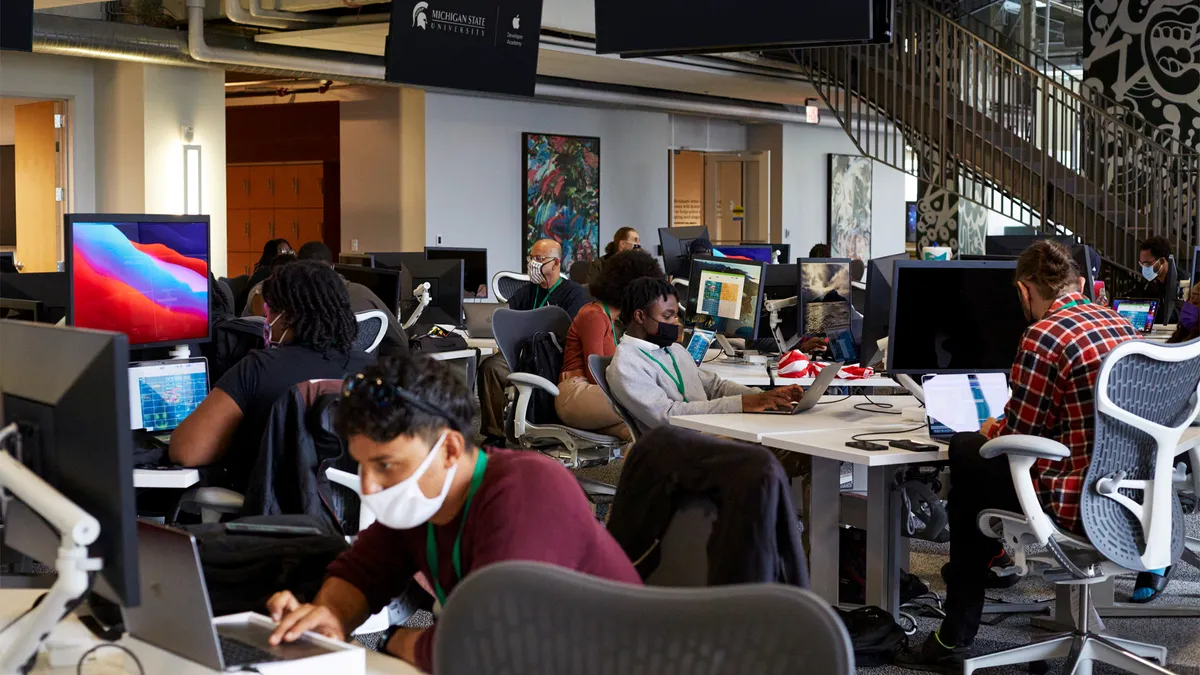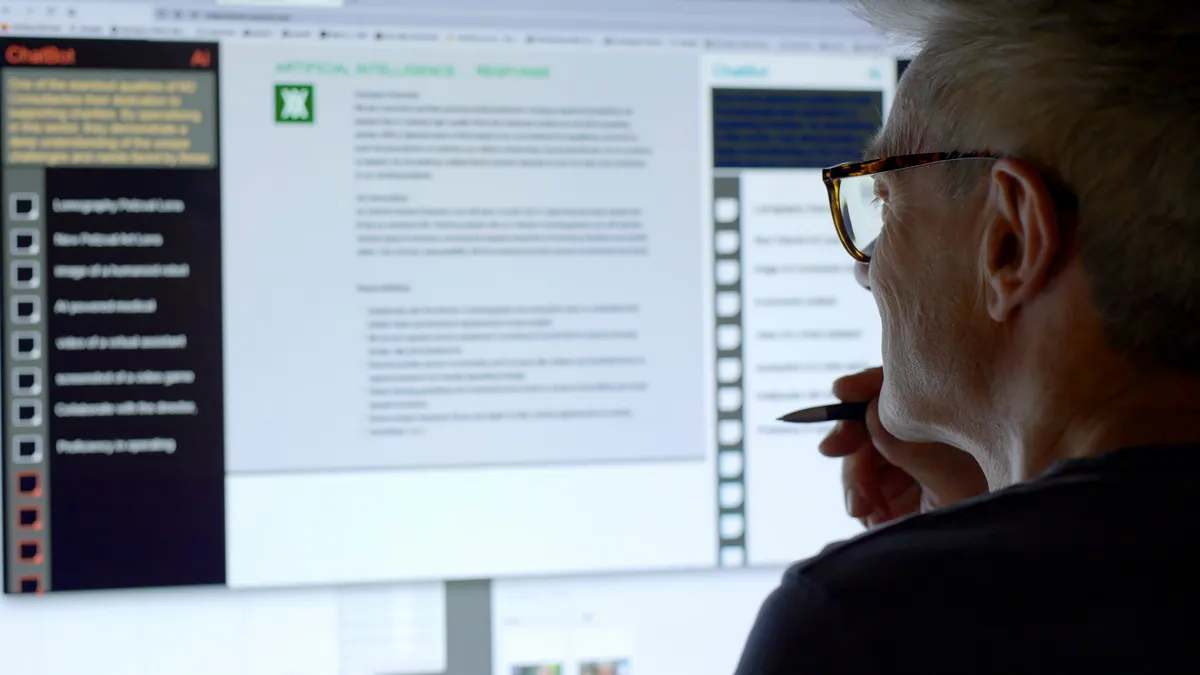Soft skills are the new currency. The ability to interact positively with others, demonstrable intellectual curiosity and the drive to learn and grow are the basics businesses can build upon. But soft skills can be the most difficult to uncover in the recruiting process. While screening software can speed the recruiter's path to finding the most experienced and credentialed applicants, finding the right soft skills is still a face-to-face endeavor.
The soft skills that matter most
First, HR pros should know what they're looking for. With soft skills becoming a buzzy term, real meaning can get lost.
Rod Adams, PwC's US & Mexico talent acquisition leader, said that a willingness to learn is perhaps one of the most important soft skills in a new hire. "The world is changing at an unprecedented pace," he said in an email, "and employees must be willing to learn and grow in order to be ready to take on more challenging work and new opportunities." Data from his company supports this: a recent PwC study shows that employees are willing to spend up to two days per month on training, if provided by their employer.
Mark Masterson, vice president of talent acquisition and delivery at Yoh, said he believes the soft skills desired depend on the role for which the candidate is being hired. For highly technical roles, an employer may want collaboration, teamwork or leadership. "In other roles or instances where a candidate may not have all the hard skills a hiring manager is looking for, a passion for learning or enthusiasm about the company or project may be the soft skill that's most important," he said.
Regardless of the role, good communication skills are often sought after in new hires, Luke Stratmann, metro market manager for Robert Half, said. "Companies are moving toward a new labor model that involves employees at all levels communicating with colleagues in other departments and presenting to management," he tells HR Dive in an email. Without strong communication skills this can be a challenge. Other in-demand soft skills include adaptability, problem solving ability and emotional intelligence.
Soft skills hints on a resume
Adams said he believes the best resumes provide a holistic look at the strengths that a potential candidate will bring to the table. Stratmann agreed, suggesting that good resumes include soft skills. Stratmann said he reminds recruiters to read the resume thoroughly to get a sense of written communication skills. "Look for tone of voice and specific examples that showcase how they've solved a problem or been a part of their team's success," he said. "Talking to the candidate's references can also provide more insight into their soft skills."
While some resumes might tote soft skills in an overview or objective section, soft skills are best identified in an interview with a recruiter or hiring manager, said Masterson. If there isn't an opportunity to speak directly with the candidate, however, he finds some information can be gleaned from a resume: references to team development and accomplishments, presentation activities, mentoring or possibly even just the construct and tone of the resume itself.
Revealing questions
Smart recruiters know yes or no questions receive yes or no answers that reveal nothing the resume hasn't already provided. Asking a candidate if they've had experience in a certain area is less illuminating than asking they tell more about that specific role or experience.
Stratmann suggests recruiters leverage behavioral interview questions for the most telling answers These ask for specific examples that go beyond yes or no responses. "Encourage candidates to discuss what motivates them and what corporate culture they thrive in," he said. He offers some examples that really give hiring managers a sense of soft skills.
- Explain a time when you had a conflict with a coworker and how you resolved it.
- Give me an example of a time when you had to explain something complex to a client or coworker.
- How have you interacted with a challenging boss?
These examples can give hiring managers a deeper dive into a candidate's thought process and how they would handle challenging circumstances.
Rather than a direct question, one of the best ways to identify soft skills in a candidate is to ask them to share stories about their past experience, including successes and times when they overcame failure, Masterson said. He suggested:
- Can you tell me of a time when you solved a problem?
- Can you share a story of how you reacted to a project that wasn't as successful as you might have liked?
Adams offered questions that get to the heart of interpersonal connections and reveal how a candidate has established and maintained relationships over a period of time:
- Tell me about a time where relationships built through past experiences contributed to you solving a problem or completing a task sometime after the connection was made.
- How did you maintain that relationship?
As the war for talent continues, many companies are looking for candidates with potential rather than waiting for those with credentials. A Yoh survey from March found 75% of Americans would hire a candidate with strong soft skills if they couldn't find a 'perfect match' for their opening. The ability and desire to learn may be the most important quality in a new hire — and being able to find those workers in the hiring process can help an employer beat the competition.





















